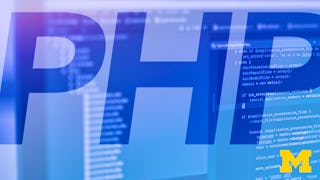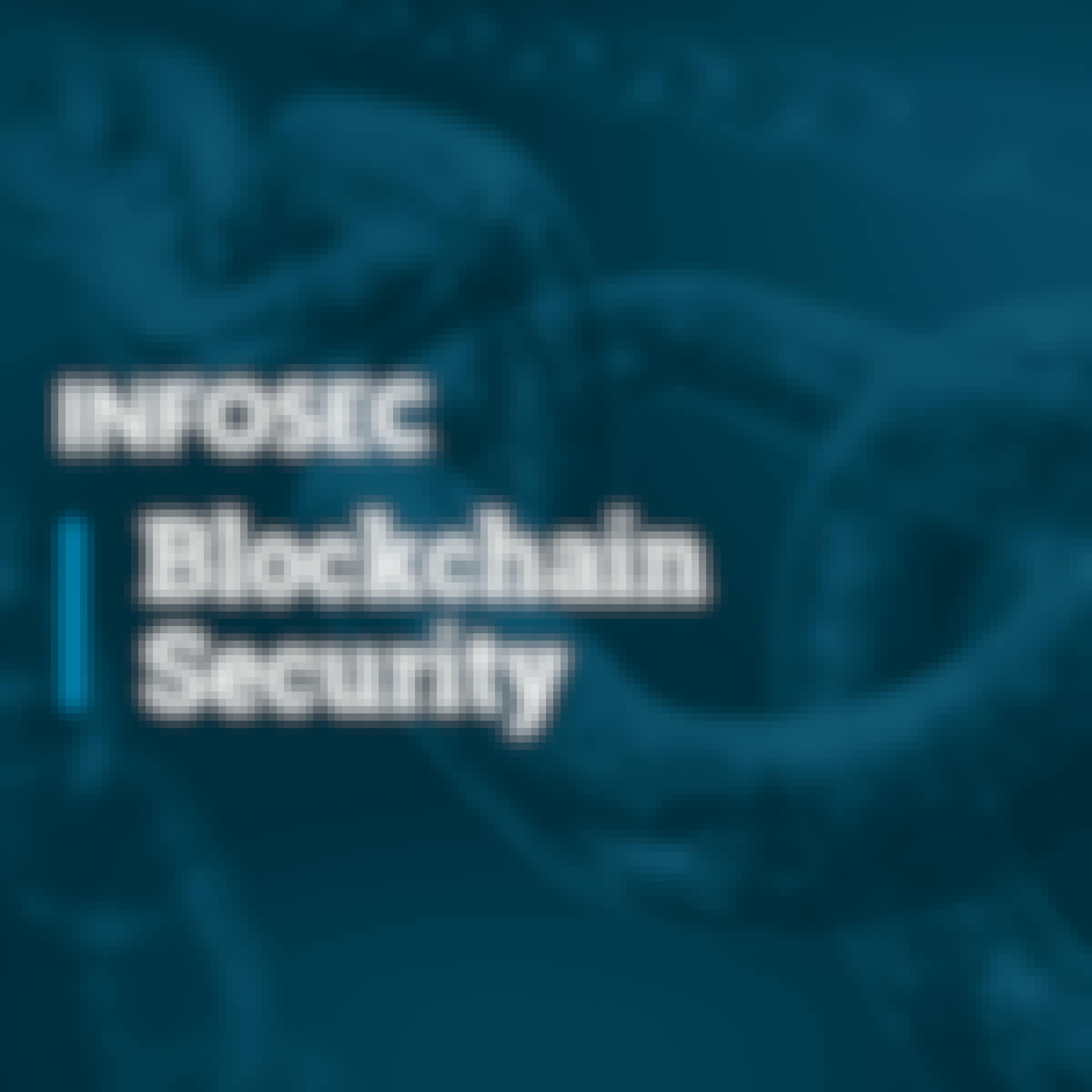Secure Coding
Filter by
SubjectRequired *
LanguageRequired *
The language used throughout the course, in both instruction and assessments.
Learning ProductRequired *
LevelRequired *
DurationRequired *
SubtitlesRequired *
EducatorRequired *
Results for "secure coding"
 Status: Free TrialFree TrialU
Status: Free TrialFree TrialUUniversity of Minnesota
Skills you'll gain: Open Web Application Security Project (OWASP), Cloud Security, Authentications, Key Management, Data Security, Cloud Applications, Cloud Services, Application Security, Authorization (Computing), Cyber Risk, Secure Coding, Cloud Storage, Personally Identifiable Information, DevSecOps, General Data Protection Regulation (GDPR), Network Security, Information Privacy, Cloud Computing, Cybersecurity, Cryptography
4.3·Rating, 4.3 out of 5 stars165 reviewsBeginner · Specialization · 3 - 6 Months
 Status: Free TrialFree Trial
Status: Free TrialFree TrialSkills you'll gain: Threat Modeling, Vulnerability Scanning, Vulnerability Management, Vulnerability Assessments, Risk Management, Secure Coding, Cyber Security Assessment, Security Testing, Cyber Governance, Risk Management Framework, Threat Management, Cyber Attacks, Software Development Life Cycle, Application Security, Cyber Security Policies, Threat Detection, Security Management, Security Controls, Security Strategy
Intermediate · Course · 1 - 4 Weeks
 P
PPackt
Skills you'll gain: Open Web Application Security Project (OWASP), Secure Coding, Application Security, Data Security, Cybersecurity, Cyber Attacks, Web Applications, Threat Detection, Security Awareness, Vulnerability Management, Encryption, Authentications, Authorization (Computing), PHP (Scripting Language)
Beginner · Course · 1 - 3 Months
 Status: Free TrialFree TrialU
Status: Free TrialFree TrialUUniversity of Michigan
Skills you'll gain: PHP (Scripting Language), Hypertext Markup Language (HTML), MySQL, Web Applications, Web Development, Secure Coding, Cascading Style Sheets (CSS), Development Environment, Back-End Web Development, Database Development, Web Servers, Debugging, Data Validation
4.7·Rating, 4.7 out of 5 stars4.3K reviewsIntermediate · Course · 1 - 3 Months
 Status: Free TrialFree TrialB
Status: Free TrialFree TrialBBoard Infinity
Skills you'll gain: Apple iOS, Apple Xcode, iOS Development, Core Data (Software), Secure Coding, Application Deployment, Scalability, Swift Programming, Performance Tuning, Application Security, Debugging, API Gateway, Application Performance Management, Application Programming Interface (API), Performance Testing, Encryption, JSON
Intermediate · Course · 1 - 4 Weeks
 Status: Free TrialFree TrialU
Status: Free TrialFree TrialUUniversity of California, Davis
Skills you'll gain: Secure Coding, Application Security, C and C++, Verification And Validation, Vulnerability Management, Linux, Security Controls, Vulnerability Assessments, Threat Modeling, Data Validation, Debugging, Cryptography, C (Programming Language), Identity and Access Management, Encryption, File Management, OS Process Management
4.6·Rating, 4.6 out of 5 stars80 reviewsIntermediate · Course · 1 - 4 Weeks

Skills you'll gain: Software Testing, Open Web Application Security Project (OWASP), Business Logic, Development Testing, Secure Coding, Cryptography, Cybersecurity, Test Case, Identity and Access Management, Authentications, Vulnerability Assessments, Data Validation, Network Protocols, Authorization (Computing), Web Applications
Intermediate · Course · 1 - 4 Weeks
 Status: Free TrialFree Trial
Status: Free TrialFree TrialSkills you'll gain: Database Management, Databases, Relational Databases, Database Architecture and Administration, Data Security, User Accounts, Secure Coding, SQL, Application Security, Vulnerability Scanning, NoSQL, Role-Based Access Control (RBAC), Encryption, Data Manipulation
4.7·Rating, 4.7 out of 5 stars57 reviewsBeginner · Course · 1 - 3 Months
 I
IInfosec
Skills you'll gain: Blockchain, Network Security, Application Security, Security Engineering, Infrastructure Security, Cybersecurity, Data Security, Cryptography, Cryptographic Protocols, Secure Coding, Encryption, Vulnerability Assessments, Scalability, Distributed Computing, Data Integrity, Algorithms
4.6·Rating, 4.6 out of 5 stars82 reviewsBeginner · Course · 1 - 3 Months
 Status: PreviewPreviewC
Status: PreviewPreviewCCoursera Instructor Network
Skills you'll gain: API Design, Back-End Web Development, Secure Coding, Data Security, Application Programming Interface (API), Restful API, Server Side, IT Infrastructure, Application Security, Infrastructure Security, Data Integrity, Servers, OAuth, Cloud Security, Server Administration, System Configuration, Encryption, Authentications, Authorization (Computing)
4.8·Rating, 4.8 out of 5 stars6 reviewsBeginner · Course · 1 - 4 Weeks
 Status: NewNewC
Status: NewNewCCoursera Instructor Network
Skills you'll gain: Secure Coding, Agile Methodology, Security Management, Cyber Security Policies, Cyber Security Assessment, Technical Management, Performance Metric, Risk Management
Intermediate · Course · 1 - 4 Weeks
 Status: NewNewStatus: Free TrialFree Trial
Status: NewNewStatus: Free TrialFree TrialSkills you'll gain: Amazon Bedrock, Software Documentation, Generative AI, Test Automation, Mockups, User Interface (UI), Software Development Tools, User Interface and User Experience (UI/UX) Design, Usability, Software Testing, Vulnerability Scanning, Application Security, Maintainability, Prompt Engineering, Test Case, Software Architecture, Code Review, Secure Coding, Artificial Intelligence, Debugging
3.6·Rating, 3.6 out of 5 stars9 reviewsBeginner · Specialization · 1 - 3 Months
Most popular
 Status: Free TrialFree TrialV
Status: Free TrialFree TrialVVanderbilt University
Specialization
 Status: PreviewPreviewK
Status: PreviewPreviewKKennesaw State University
Course
 Status: Free TrialFree Trial
Status: Free TrialFree TrialSpecialization
 Status: PreviewPreviewE
Status: PreviewPreviewEEIT Digital
Course
Trending now
 Status: Free TrialFree TrialV
Status: Free TrialFree TrialVVanderbilt University
Specialization
 Status: Free TrialFree Trial
Status: Free TrialFree TrialBuild toward a degree
Professional Certificate
 Status: Free TrialFree Trial
Status: Free TrialFree TrialSpecialization
 Status: Free TrialFree TrialM
Status: Free TrialFree TrialMMicrosoft
Professional Certificate
New releases
 P
PPearson
Course
 Status: Free TrialFree TrialM
Status: Free TrialFree TrialMMacquarie University
Specialization
 Status: Free TrialFree Trial
Status: Free TrialFree TrialSpecialization
 Status: PreviewPreviewC
Status: PreviewPreviewCCoursera Instructor Network
Course







